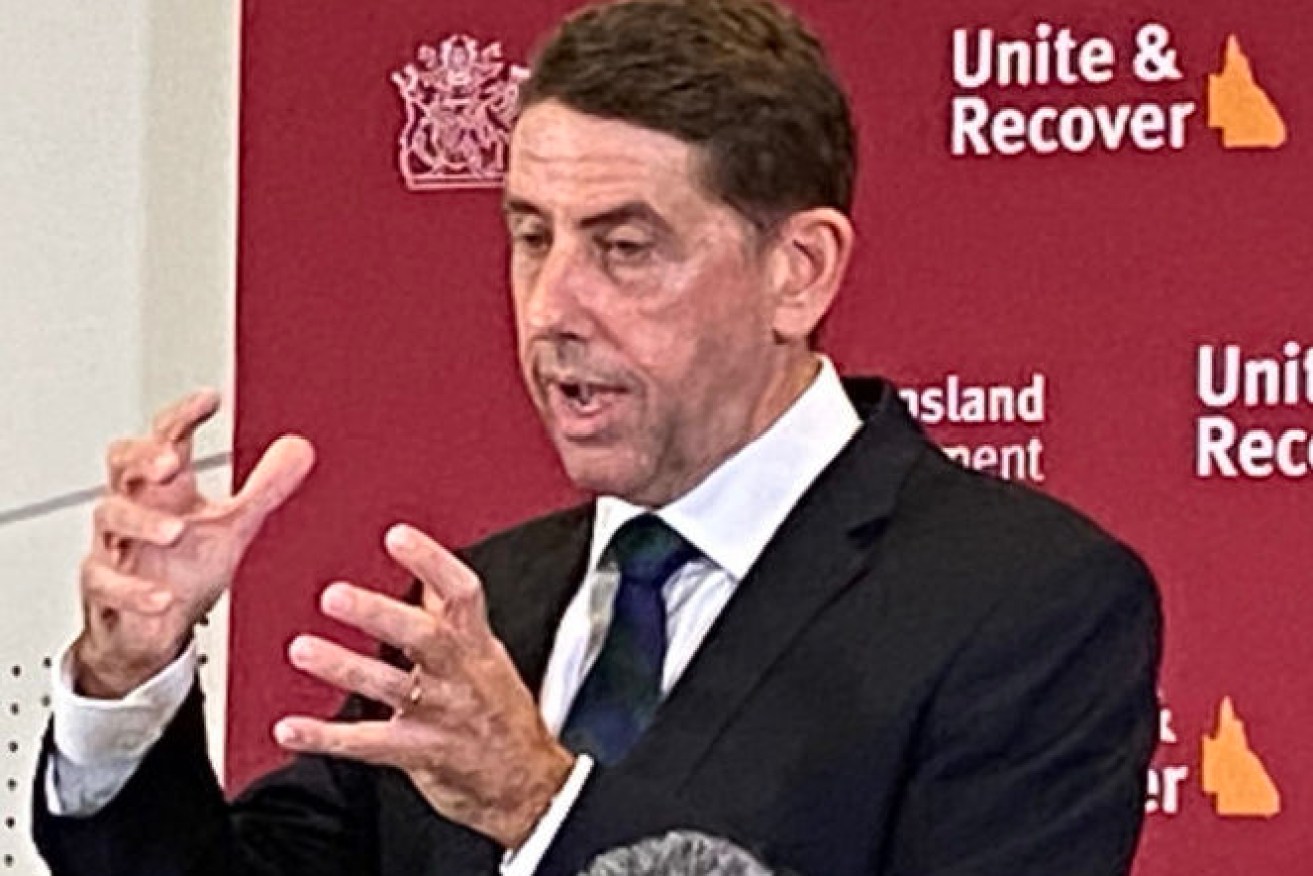Auditor General’s report warns public sector blowouts could force cuts to services
The increase in Queensland public service numbers over the next three years was likely to lead to cuts in services if the Government wants to meet its own targets, according to the Auditor General.


Queensland Treasurer Cameron Dick.
The report follows revelations this week showing the State’s finances were reeling from the recent floods which would cost the State Government as much as $2.5 billion for infrastructure repairs as well as $1 billion hit to the economy.
But an economic saviour may exist in the resources sector where royalties are expected to be billions of dollars above forecasts.
The report said while the Budget forecast total expenses to grow by just 2.3 per cent, employee expenses were forecast to increase by an average of 3.9 per cent each year over the four years to 2024–25.
“This means the Government will need to achieve savings in other expenses over this period if it is to achieve its forecast expense targets in line with the new fiscal principle,’’ the Auditor General said.
It anticipated a wages increase of 4.5 per cent this year and 4.1 per cent next financial year.
The Palaszczuk government has added more than 34,000 workers to the public sector since 2014-15 and the annual wages bill is more than $67 billion.
The report released today also revealed a potential $100 million hole in funding for the Palaszczuk Government because agreements with the Federal Government had not yet been signed off.
The state and federal governments have funding agreements in place until the end of the financial year but they have not yet been renewed. The biggest bill was $60 million for early childhood education.
“Any decision by the Australian Government to not renew or replace the remaining funding agreements may affect the Queensland Government’s capacity to meet ongoing community service needs,’ the Auditor General report said.
However, the two governments are only awaiting an implementation of the early education deal and have agreed to funding.
But the Budget is likely to find an economic saviour from the coal sector where mining royalties are flooding into Treasury on the back of record prices.
Economist Gene Tunny, from Adept Economics, agreed. He said coking coal prices were well ahead of Budget forecasts with coking coal currently selling at $US580 a tonne and thermal coal at $US423 a tonne.
He said the Budget shows that a 1 per cent variation in the average price of export coal would lead to a change in royalty revenue of about $33 million.
“We are currently seeing prices 160 per cent (for coking coal) and 280 per cent (for thermal coal) higher than budget assumptions. These crazily high prices obviously won’t last,’’ Tunny said.
He said while there was no crystal ball that would show how coal prices would end up impacting the Budget, but even conservative estimates of a 50 per cent increase would show the Government would earn an extra $1.7 billion to $2 billion.
“It’s possible we could be talking about a $2 billion or more improvement in royalties depending on where prices settle,’’ Tunny said.
The Auditor General’s report said it was likely to be $3 billion above the 2022 Budget estimate.
The Budget was likely to also benefit from surging royalties from LNG, a commodity that is sold under contract prices but also linked to the oil price.
The Auditor General report said that at the end of last financial year, the value of investments held to meet future superannuation obligations exceeded the Queensland Government’s superannuation liability by $2.8 billion.
“This is a significant improvement on the position as at 30 June 2020, where the value of the superannuation liability exceeded the value of the investments held by $1.5 billion.
“The improved position was due to an increase in the value of the investments held, and a decrease in the government’s superannuation liability.’’












